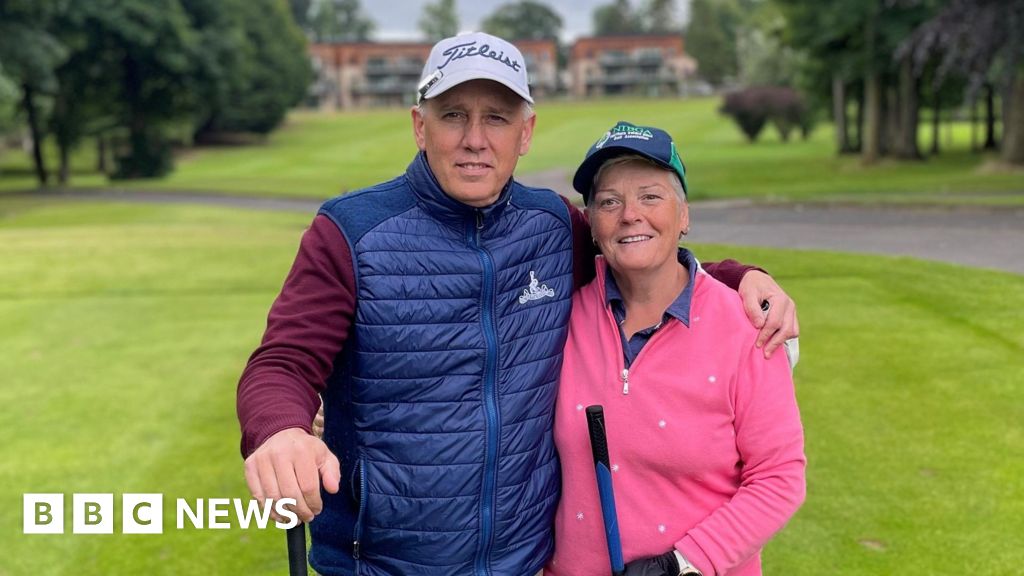Golf
Policeman who lost sight after 9/11 targets NI golf success – BBC News

- Author, Daniel Logan
- Role, BBC News NI
A former New York policeman who lost much of his sight in the aftermath of 9/11 has described a blind golf tournament in County Antrim as a “tremendous outlet”.
Paul McCormack, who was born to Irish parents, has been taking part in the British Blind and Disabled Golf Open Championship at Massereene Golf Club.
Now in its 33rd year, the competition has welcomed 26 players, 19 of whom are from Ireland, who are trying their luck to seize the top prize.
Mr McCormack lost his central vision and retained about 30% of his sight as a result of chemicals while clearing the World Trade Centre site in 2001.
“When I got into blind golf it completely reinvigorated my competitive juices,” he told BBC News NI.
“Being blind can be a lonely and depressing place when you have no outlet, it allows us to get out and socialise, meet people, have a pint and be a normal human being.”
The competition started in 1991 at Killymoon Golf Club in County Tyrone.
Among this year’s competitors there are three Spanish players, two from Scotland and an Australian.
Miguel Cuerva Garcia, from Spain, told the BBC “the desire to participate, the excitement of hitting the ball, and the satisfaction to do so whilst being visually impaired, is why I love to travel the world and visit places like this”.
There are three categories – B1 players have no light perception in either eye, or light perception but an inability to recognise shapes at any distance or in any direction.
B2 and B3 players have a low level of partial vision, with B2 players being worse than B3.
‘The idea is to increase awareness’
Kate Daly, the captain of Northern Ireland blind golf, told BBC News NI the sport has a big impact.
“Northern Ireland blind golf has the biggest lady membership of any blind golf association in the world,” she explained.
“The idea is to increase awareness so these types of events can happen and get people with disabilities to realise that they can come and be included and to take part, as well as get some exercise, and more importantly, socialise within the community.”
Kate credits Una Mulgrew, community connect coordinator of the Royal National Institute for the Blind (RNIB), for playing a major role.
Una told BBC News NI her role is a “connector”, using sport, art and music to bring blind and partially sighted people together and create peer relationships, encouraging any members of this community to just get involved.
“We want not only golfers who have lost their sight but also people who have lost their sight to pick up golf,” she said.
The roster of names includes the 2022 B1 world champion from Spain, Alejandro De Miguel.
Those visually impaired will carry out the 18 holes with a guide to ensure they know the true distance and direction of play.
However, not all golfers are visually impaired as some of the players also have neurological disabilities, as well as being amputees.
Representing Australia, Kieran McBrien, who moved there from Northern Ireland in 2006, has hereditary spastic paraplegia.
He considers himself to have a minor disability, where he requires no guide.
When referring to his fellow competitors he said he sees them as an “inspiration”.
“I admire these guys more than anybody else,” he said.
The championship finishes on Wednesday.










